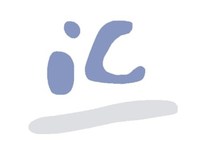Conferencia: "Geodesic Lens Antennas for 5G/6G and Satellite Communications"
 1
/
1
1
/
1

Impartida por el Dr. Oscar Quevedo Teruel (KTH Royal Institute of Technology, Stockholm, Sweden) y organizada por el Departamento de Ingeniería de Comunicaciones
Día: miércoles 20 de octubre de 2021
Hora: 12:00
Lugar: Sala de Grados C + online
Abstract:
In this talk, Oscar Quevedo-Teruel will introduce the theory and operation of geodesic lenses. These lenses have attracted the attention of the antenna community due to two of their advantageous properties: low cost and high efficiency. Geodesic lenses make use of a physical path that mimics an equivalent graded refractive index. Therefore, differently to conventional lenses, they can be implemented in a fully-metallic configuration using parallel plate waveguides. This makes these lenses ideal for high-frequency applications, where dielectric materials have prohibitive losses. Moreover, since geodesic lenses can mimic the properties of graded-index lenses, they can provide wide-angle scanning capabilities with reduced scan losses. Therefore, these lenses are an excellent candidate for new applications in the millimeter frequency regime. For example, they are being considered for antenna solutions in 5G/6G, satellite communications in Low-Earth Orbit constellations and automotive radars.
Biography:
Oscar Quevedo Teruel is a Senior Member of the IEEE. He received his Telecommunication Engineering Degree from Carlos III University of Madrid, Spain in 2005, part of which was done at Chalmers University of Technology in Gothenburg, Sweden. He obtained his Ph.D. from Carlos III University of Madrid in 2010 and was then invited as a postdoctoral researcher to the University of Delft (The Netherlands). From 2010-2011, Dr. Quevedo-Teruel joined the Department of Theoretical Physics of Condensed Matter at Universidad Autonoma de Madrid as a research fellow and went on to continue his postdoctoral research at Queen Mary University of London from 2011-2013.
In 2014, he joined the Division for Electromagnetic Engineering in the School of Electrical Engineering and Computer Science at KTH Royal Institute of Technology in Stockholm, Sweden where he is a Full Professor and Director of the Master Programme in Electromagnetics Fusion and Space Engineering. He has been an Associate Editor of the IEEE Transactions on Antennas and Propagation since 2018, a member of the Editoral Board of Nature Scientific Reports since 2021, and the founder and editor-in-chief of the EurAAP journal Reviews of Electromagnetics since 2020. He was the EurAAP delegate for Sweden, Norway, and Iceland from 2018-2020, and he has been a member of the EurAAP Board of Directors since January 2021. He is a distinguished lecturer of the IEEE Antennas and Propagation Society for the period of 2019-2022, and Chair of the IEEE APS Educational Initiatives Programme since 2020.
He has made scientific contributions to higher symmetries, transformation optics, lens antennas, metasurfaces, leaky wave antennas and high impedance surfaces. He is the co-author of 105 papers in international journals and 160 at international conferences.
> Poster
> Link to online conference






